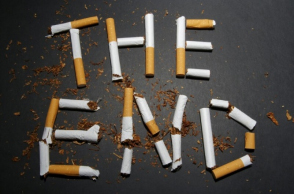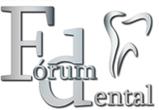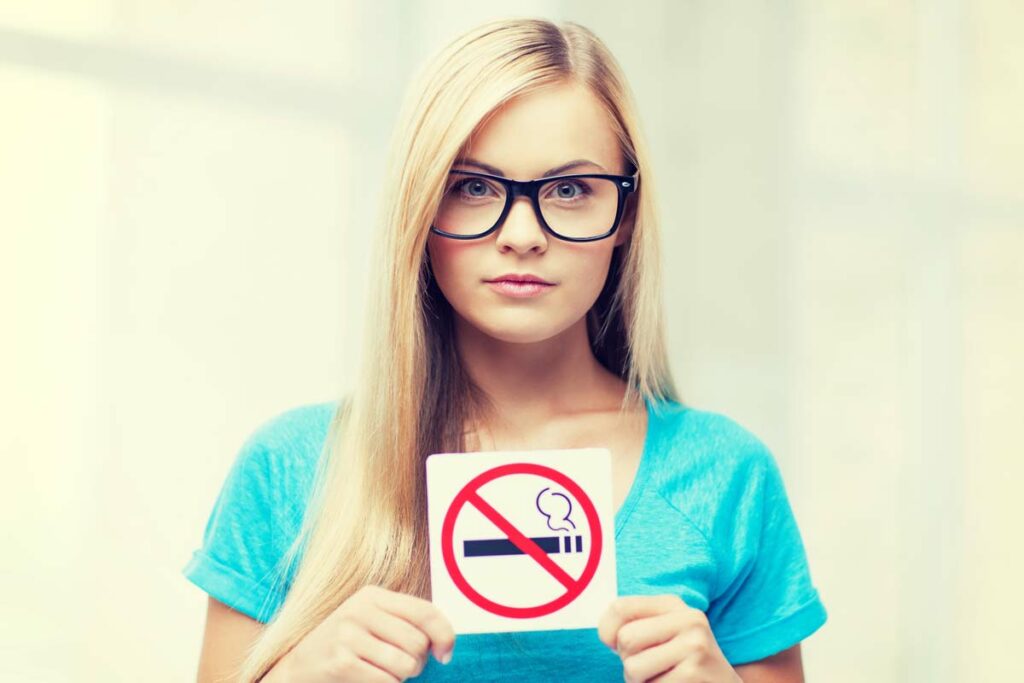Everyone knows the cliché: ” Smoking is bad for your health.” We always try to make the patient REALLY understand this sentence when we inform them aftera tooth extraction , but of course in the vast majority of cases they will nod profusely and smoke a cigarette when they leave the practice.
True, this is not a “STOP DRIVING!” site, but if you just read this article and think about the fact that you really should stop, you are already ahead of the game.
What does tobacco smoke do to the roof of your mouth?
The gateway to tobacco smoke is the oral cavity. At its highest concentration, tobacco smoke comes into contact with the mucous membranes of the oral cavity and therefore causes significant damage.
The effect is that when you smoke, you inhale hot, irritating smoke containing toxic substances that dry out and inflame the tissues it comes into contact with. A much higher percentage of smokers experience gingivitis than non-smokers. Smoking is known to cause vasoconstriction, an effect that is also felt in the oral cavity. The blood supply to the oral mucosa is reduced, resulting in a loss of nutrients and oxygen.
This is particularly important following tooth extraction , when good oxygen and blood supply to the oral cavity is of paramount importance for successful and complication-free healing. For these reasons, we usually recommend that you do not smoke for at least 2-3 days after tooth extraction and pay close attention to oral hygiene.

(image source: smoking-solutions.net)
And if it’s already lasted 2-3 days, what’s the point of continuing…?
If you have any questions or would like to have your teeth checked, please feel free to contact our dentists who will be happy to help you!
(source used for this article: www.fogvedoklub.hu)

